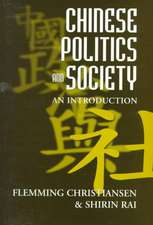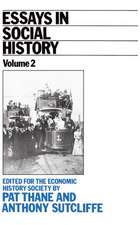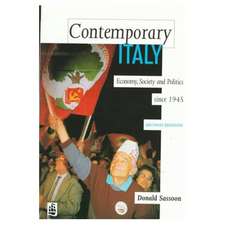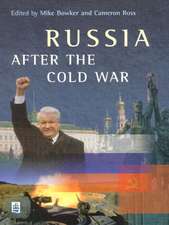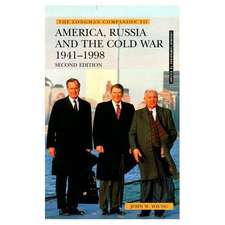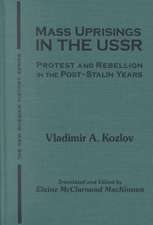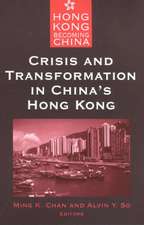An Economic and Social History of Western Europe since 1945
Autor Anthony Sutcliffeen Limba Engleză Paperback – 18 sep 1996
Preț: 356.18 lei
Nou
Puncte Express: 534
Preț estimativ în valută:
68.16€ • 71.30$ • 56.62£
68.16€ • 71.30$ • 56.62£
Carte tipărită la comandă
Livrare economică 02-16 aprilie
Preluare comenzi: 021 569.72.76
Specificații
ISBN-13: 9780582236455
ISBN-10: 0582236452
Pagini: 400
Dimensiuni: 138 x 216 x 23 mm
Greutate: 0.47 kg
Ediția:1
Editura: Taylor & Francis
Colecția Routledge
Locul publicării:Oxford, United Kingdom
ISBN-10: 0582236452
Pagini: 400
Dimensiuni: 138 x 216 x 23 mm
Greutate: 0.47 kg
Ediția:1
Editura: Taylor & Francis
Colecția Routledge
Locul publicării:Oxford, United Kingdom
Public țintă
Postgraduate and UndergraduateRecenzii
"This is now simply the best introduction to post 1945 European economic and social History."
Journal of European Area Studies
Journal of European Area Studies
Cuprins
Preface. 1. The Reconstruction Challenge: Western Europe, 1945-c.1952. 2. The Northern Industrial Core: Britain, France, and Germany 1945-c. 1960. 3. Contrasts on the Fringe: The Nordic Countries and the Mediterranean South 1945-1960. 4. Towards the European Economic Union 1945-1995. 5. The Society of Success: Consumerism, Youth Culture and Protest 1945-1970. 6. The New Europeans: Immigration, Immigrants and Their Descendants. 7. The New Climate of External Events: (1) The Oil Crisis, 1973, and (2) The Collapse of European Communism, 1989-1991. 8. National Problems and Progress: Germany, France and Britain since the 1960s. 9. The Benelux Countries: Modernisation through Association, 1945-1995. 10. Progress and Problems on the Western European Fringe since the 1960s. 11. Western European Society since 1970. 12. Conclusion. Bibliography. Index.
Descriere
An introductory survey that sets out to explain why and how western Europe built up its postwar prosperity and is moving towards continental integration. Themes include:
- the origins of the EEC
- consumerism, youth culture and protest
- immigration
- the oil crisis and its aftermath
- the contrasting experience and expectations of the Nordic world and the Mediterranean south
- the consequences of Soviet collapse.

